Creating Capacity Through the Atrium Health Hospital at Home Program
Dr. Daniel Davis
The State of NC’s published population growth estimates for 2020-2023 citing that several counties in the Atrium Health market will experience double-digit growth –Mecklenburg County will increase by 17.2%, Union County by 25.7% and Cabarrus County by 21.8%. This tremendous growth coupled with an aging population has resulted in significant capacity challenges in the Atrium Health acute care facilities. To help address capacity challenges Atrium Health implemented a hospital at home program in March 2020. Hospital at home programs that enable patients to receive acute inpatient level care at home have proven effective in producing equivalent or better outcomes while reducing complications and reducing the overall cost of care. Hospital at Home programs produce significant value by reducing the fixed/variable costs associated with operating a brick-and-mortar hospital while delivering exceptional outcomes with fewer complications than traditional hospital care. These benefits allow the hospital at home program to be a viable alternative to brick-and-mortar investments for increasing acute care capacity. Existing challenges such as staffing limitations, economic shifts, and technology integrations make taking the strategic step into hospital-at-home daunting for some organizations. This presentation will share the Atrium Health experience with launching and scaling their successful hospital at home program.
Learning Objectives:
- Describe the changing healthcare environment that makes hospital at home a viable option for health systems.
- Articulate the operational, tech and staffing aspects of a successful hospital at home program
- Compare operational, quality and patient experience outcomes between traditional inpatient care and hospital at home
 Daniel Davis, MD, Senior Medical Director, Primary Care, Greater Charlotte Market Atrium Health
Daniel Davis, MD, Senior Medical Director, Primary Care, Greater Charlotte Market Atrium Health
https://www.linkedin.com/in/daniel-davis-md-0557341b7/
Dr. Dan Davis serves in multiple medical leadership roles within Atrium Health. As senior medical director of continuing health, Dan has medical oversight responsibility for multiple home and community-based care programs within Atrium Health including Atrium Health Hospital at Home, Mobile Integrated Health, Transition Services, Primary Care Connect and Home Health. Under his leadership the continuing health strategies are being aligned and integrated to create a seamless care continuum experience for patients and providers in the ambulatory space. In this role, Dan spearheaded the development and implementation of Primary Care Connect, a virtual nursing care coordination program, across the Atrium Health Primary Care footprint in North Carolina, South Carolina, Georgia, and Alabama. Primary Care Connect has touched the lives of over 13,000 patients since its inception in 2021. In leading Atrium Health Hospital at Home, Dan has been instrumental in maintaining its status as the largest Hospital at Home program in the nation caring for more than 11,000 patients since inception. In his role as senior medical director of Primary Care in Atrium Health’s Greater Charlotte Market, Dan has responsibility for 550 family medicine, internal medicine, and urgent care physicians and APPs who provide care for over 750,000 patients. In addition to his leadership responsibilities, Dan continues to practice as an internal medicine physician in Charlotte, North Carolina.
The Impact of Evidence-Based Care Plans on Cost and Utilization
Monica Schmidt, MPH PhD
There is a plethora of evidence that supports nurse care management to delay the progression of chronic diseases and reduce the cost of care. In fact, value-based care is anchored in the ability to keep a population healthy longer while reducing acute unplanned hospitalizations. It is unclear if guidance from evidence-based nurse care plans impact clinical and financial outcomes.
Our study aimed to evaluate the impact of using Elsevier evidence-based care plans by nurse care managers to reduce emergency room visits for ambulatory sensitive conditions and overall annual paid claims amount for members in value-based care contracts at Cone Health (Triad Healthcare Network). Our hypothesis is that if care managers utilized evidence-based care plans, the members would have fewer ED visits and lower annual spend compared to similar members not undergoing active care management.
Learning Objectives:
- Recognize the importance of using evidence-based care management strategies to reduce acute utilization and cost of care in a value-based care payment model.
- Compare methods for finding a comparable population to use as controls when analyzing complex population health data.
- Report on the new AHRQ ambulatory sensitive condition definitions and how they can be used in population health analytics to tease out preventable visits to emergency departments.
- Report on the impact of using evidence-based care plans to guide nurses in their care of large, diverse populations. Demonstrate the value of the care plan used on ED visits and average per member per month spend.
- Describe how evidence-based guidelines reduce care variation and keep staff on track to manage large populations of individuals successfully.
 Monica Schmidt , Executive Director: Health Economics, Cone Health
Monica Schmidt , Executive Director: Health Economics, Cone Health
https://www.linkedin.com/in/monica-schmidt-mph-phd-970b839/
Dr. Schmidt is a key leader in the healthcare industry. She obtained her MPH in epidemiology and PhD in health services research with a focus on economics from the University of North Carolina’s Gilling’s School of Global Public Health. Her focus has been on identifying unwarranted care variation using robust data sources to improve the quality and cost of care across the continuum. She has designed multiple informatics tools to address high-cost problems such as acute kidney injury and diabetic related peripheral neuropathy leading to amputation. By finding novel ways to move care upstream in the chronic disease pathways, she has been successful in preventing downstream complications. For example, the embedded tool designed by Dr. Schmidt to identify acute kidney injury earlier for inpatients has resulted in over 2000 averted cases of AKI estimated to be worth $8 million dollars in savings over 12 months. Dr. Schmidt’s research has been focused on identifying opportunities for large health systems and ACOs to reduce the cost of care while not compromising quality. She partners with industry to conduct pragmatic clinical trials that test novel technologies that avert chronic disease complications instead of managing these complications.
The Innovation Conundrum: Why Healthcare Struggles to Evolve
Dr. Kumar Murukurthy
Will Johnson
John McCullough
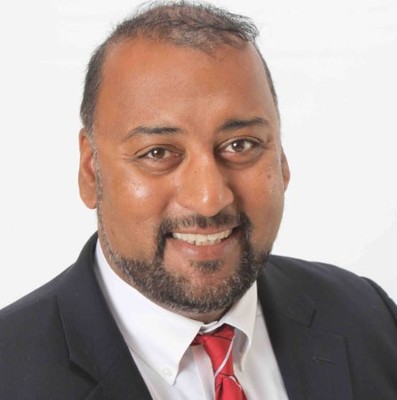 Kumar Murukurthy, MD, CIDO, Altais
Kumar Murukurthy, MD, CIDO, Altais
https://www.linkedin.com/in/kumar-murukurthy-md/
Kumar Murukurthy is a results-driven healthcare executive with over 25 years of progressive leadership roles, from CMIO to CIO, specializing in healthcare informatics and health information technology system usability. As the CIDO at Altais, he is involved in the development and implementation of technology-driven strategies and initiatives that align with the overall business objectives of the organization.
Formerly the CIO and senior director of digital transformations and innovation at Walmart Health, Kumar was responsible for the overall management and strategic direction of the organization’s information technology systems and infrastructure. He led the implementation and operations of EHR and digital systems throughout Walmart Health and Wellness and was responsible, at the enterprise level, for technology and digital strategy, operations, talent, technical, and financial leadership. He analyzes pain points and goals, providing innovative solutions within a tight timeframe, and ensures the appropriate product and strategy exist to assist clients in achieving their goals.
Prior to joining Walmart Health, Kumar was responsible for leading the implementation and operations of major EHRs throughout the CommonSpirit Health System’s 1000+ sites. His role encompassed enterprise-level IT and digital strategy, operations, talent, technical, and financial leadership. Kumar had direct involvement in the merger of Dignity Health and Catholic Health Initiative technologies.
 Will Johnson, CPHIMS, CIO Tidelands Health
Will Johnson, CPHIMS, CIO Tidelands Health
https://www.linkedin.com/in/will-johnson-mba-chcio-fhimms-cphims-79480b7/
 John McCullough, CPHIMS, Senior Partner Digital & Technology Organization, Chartis
John McCullough, CPHIMS, Senior Partner Digital & Technology Organization, Chartis
https://www.linkedin.com/in/jdmcc18/
John McCullough is a senior partner in digital & technology transformation and co-leads the business technology innovation practice at Chartis. He has over 20 years of experience driving the operational aspects of designing, developing, and delivering creative digital strategies and solutions that improve quality and lower costs.
He is skilled at aligning technology operations with corporate and marketplace strategies in both start-up and mature operating environments.
Prior to joining Chartis, John served in multiple progressive IT executive roles at the Cleveland Clinic, the most recent being the executive director of ITD Digital Business Applications. He has also served in executive positions at Wake Forest Baptist Medical Center, Novant Health, and Salem Health Solutions.
John earned his master’s degree in business administration from Wake Forest University, and his Bachelor of Science from the Medical University of South Carolina.
KEYNOTE PRESENTATION – Institution-Wide Governance for AI in Healthcare
Anand Chowdhury
At Duke Health, we have developed and implemented the Algorithm-Based Clinical Decision Support (ABCDS) Oversight program, a “people-process-technology” framework for the governance and evaluation of clinical algorithms created for use at Duke Health. This framework fosters innovative, safe, equitable, and high-quality patient care by introducing checkpoints throughout the development lifecycle as well as after deployment to ensure that transparency, quality, and ownership are maintained for ABCDS algorithms and tools. The ABCDS Oversight is a collaborative effort between the Duke University School of Medicine and the Duke University Health System.
We have adapted the ABCDS Oversight framework to accommodate the new challenges we face with generative AI, specifically:
- How do we measure the output of generative AI when we cannot use traditional metrics, such as precision, recall, etc.?
- What new types of bias may exist in generative AI, such as content bias, representation bias, or interaction bias? How do we detect and mitigate these biases?
- How do we assess the value proposition of a generative AI tool, such as its impact on clinical outcomes, workflow efficiency, user satisfaction, and cost-effectiveness?
To answer these questions, we have established best practices and guidelines for the development, deployment, and monitoring of generative AI tools, such as:
- Following the principles of responsible AI: Clinical Value and Safety; Fairness and Equity; Usability, Reliability, and Adoption; Regulatory Compliance; and Transparency and Accountability.
- Ensuring the security, privacy, and consent of patient data and generated content.
- Providing clear and accurate documentation and communication of generative AI tools and their limitations.
- Engaging with stakeholders, such as clinicians, patients, regulators, and researchers, to solicit feedback and address concerns.
Learning Objectives:
- Understand the opportunities and challenges of using generative AI in clinical decision support.
- Learn about the ABCDS Oversight framework and how it can be adapted for generative AI tools.
- Apply the methods and tools we have developed and used for the governance and evaluation of generative AI tools.
- Follow the best practices and guidelines we have established for the responsible use of generative AI in healthcare.
 Anand Chowdhury, MD, Informatician, Pulmonologist, and Intensivist, Duke Health
Anand Chowdhury, MD, Informatician, Pulmonologist, and Intensivist, Duke Health
https://www.linkedin.com/in/anand-chowdhury/
Dr. Anand Chowdhury is an Assistant Professor of Medicine with a practice in pulmonary and critical care medicine. His medical training spans prestigious institutions such as the Cleveland Clinic, Emory, and Baylor College of Medicine. Further enhancing his expertise, Dr. Chowdhury completed the Clinical Informatics fellowship at Duke and holds a master’s degree from the MMCi program.
As the Director of Informatics for Artificial Intelligence at Duke, Dr. Chowdhury has contributed to adapting clinical decision support processes for generative AI. He is an ex officio member of the AI Strategic Planning Group for Duke Health and leads several innovative pilots of generative AI healthcare applications.
Dr. Chowdhury’s expertise and research interests lie at the intersection of technology and healthcare, focusing on Critical Care Analytics, the utilization of health data for program evaluation, and the evaluation of generative AI in healthcare applications. His work focuses on ensuring that technology enhances patient care, clinician wellness, and clinical outcomes.
The Who, Where and Why of Hospital Security
David Stallsmith
Who is in your hospital, where they are and why they are there are questions that physical access systems seek to answer and manage through assigning roles, policies and permissions. Getting this right can help prevent workplace violence, secure assets and persons, and support contact tracing. However, access control systems do not always communicate well with infant security systems, visitor management, badging and other systems that are crucial to securing a healthcare institution. The spaces between independent systems can create vulnerabilities for physical security. Bring your ideas, stories and questions to our open forum discussion, which can include ways to improve new hire satisfaction and inclusivity in the badging process, manage visitors and patients, prevent spread of infection, and automate communications between hospital systems so identity data and the people it represents can get where it needs to go, and fast.
Learning Objectives:
- Why the who, where and why of physical identity matters
- How gaps between systems that manage people in your institution can create vulnerabilities, leading to harm
- Ways to pre-emptively identify and prevent workplace violence
- How security directors at other hospitals are approaching system integrations to improve security and reduce vulnerabilities
- What can go wrong if identification methods and procedures are insufficient or ineffective
 David Stallsmith Director of Product Management, ColorID
David Stallsmith Director of Product Management, ColorID
https://www.linkedin.com/in/david-stallsmith-2a787715/
Since joining ColorID in 2005, David Stallsmith has worked work closely with manufacturers, vendors, and end users to promote understanding of the complicated products and services that comprise the identification industry. He has contributed to the decision-making process at many universities, health care facilities and government agencies as they considered acquiring contactless, smart card, mobile ID and biometric systems. Voted Presenter of the Year at the 2023 ECCA Conference in Warsaw (European Campus Card Association), David has also presented annually at the National Association of Campus Card Users conferences in the USA and Canada, NACAS annual and Leadership conferences, and full-day Identity Summits hosted by prominent universities.
Clinical Presentations
Clinical Decision Support Standardization for Behavioral Health
Sarah McNulty
Clinical Decision Support (CDS) opportunities exist for most specialties, and behavioral health settings are no different. A CDS for providers working with patients who are diagnosed with attention deficit hyperactivity disorder and taking stimulant medications to help monitor vitals is the first step in standardizing a CDS for behavioral health. Behavioral health professionals, information technology professionals, and Clinical Informatics students collaborated to develop a model for the ADHD CDS.
Learning Objectives:
- Understand the importance of integrating Clinical Decision Support Standards into behavioral health settings.
- Apply CDS standards to improve providers’ workflow.
- Identify the return-on-investment opportunities as well as the return on health.
- Recognize how CDS impacts social determinants of health.
- Support standardizing CDS standards for common mental health conditions.
 Sarah McNulty, Licensed Clinical Social Worker Duke MMCi
Sarah McNulty, Licensed Clinical Social Worker Duke MMCi
https://www.linkedin.com/in/sarahmariamcnulty/
Sarah McNulty is a hospice clinical social worker with Duke HomeCare and Hospice. She has over 15 years of medical social work experience and has specialized in hospice care for six years. She feels the support services have a voice, and a meaningful assessment would enhance patient care. This belief led her to pursue a Masters of Management in Clinical Informatics from Duke University School of Medicine. Sarah obtained her undergraduate degree from East Carolina University in Greenville, NC, and her Master of Social Work from Smith College School of Social Work in Northampton, MA. She is a licensed clinical social worker in NC and has an advanced hospice and palliative care social worker certificate from the Hospice and Palliative Credentialing Center. Sarah is also a clinical supervisor for Licensed Clinical Worker Associates in NC. As a yoga student for over 20 years, Sarah received her yoga teacher certification from Triad Yoga Institute in Greensboro, NC.
Exchanging Health Related Social Needs Data with NC HealthConnex
Haley Young
Jenell Stewart
Paul Thomas
Han Nguyen
This presentation will focus on how North Carolina is working to standardize the collection and exchange of Health-Related Social Needs (HRSN) data. The panel members will outline the collaboration between various teams and the future vision for the use of standardized data to improve whole-person health across the state.
Summary:
- There is a national and local need to collect HRSN data in a standardized way.
- North Carolina has developed standards for collecting and exchanging HRSN data across health systems.
- Standardizing HRSN data exchange will enhance population health management and reduce duplicate efforts.
- Future goals include scaling the model statewide and improving data sharing through NC HealthConnex.
 Haley Young Acting Chief Data Officer, NCDHHS
Haley Young Acting Chief Data Officer, NCDHHShttps://www.linkedin.com/in/hayley-elia-young/
Hayley Young serves as the acting chief data officer for North Carolina’s Department of Health and Human Services. In her role she leads in developing a strategy to use data to inform and evaluate policy, programs, and services and improve the health and well-being of residents of North Carolina. Ms. Young supports a range of efforts in the areas of data infrastructure, governance, training, and analysis across NCDHHS programs. She received her MPH from Emory University with a Certificate in Maternal and Child Health.
 Jenell Stewart Asst. Director, Health Analytics and External Services, NC Health Information Exchange Authority
Jenell Stewart Asst. Director, Health Analytics and External Services, NC Health Information Exchange Authority
https://www.linkedin.com/in/jenell-stewart-drba-706b0a4/
Dr. Jenell Stewart joined the NC Health Information Exchange Authority (NC HIEA) in May of 2019, she is the assistant director for Health Analytics and External Services. Her current role includes establishing the strategic direction for the NC HIEA analytics program, managing the analytics team, and working closely with health care leaders across the state of North Carolina. She works closely with leadership, technology partners and other key stakeholders to drive adoption of good data management practice across the enterprise.
Jenell earned her doctorate in business administration specializing in management of engineering and technology from Northcentral University. She has over 20 years of N.C. state government experience with the last 12 years working for the North Carolina Department of Technology Data Division, of which the NC HIEA is a part.
 Paul Thomas Analytics and Interoperability Solutions Developer, UNC Health
Paul Thomas Analytics and Interoperability Solutions Developer, UNC Health
https://www.linkedin.com/in/paul-thomas-81349999
Paul has 15+ years experience developing interface solutions between hospital EMRs and vendor software.
 Han Nguyen Analytics and Interoperability Solutions Developer, UNC Health
Han Nguyen Analytics and Interoperability Solutions Developer, UNC Health
https://www.linkedin.com/in/hantnguyen/
Han Nguyen is a solutions developer at UNC Health. She has over 25 years of experience in financial and healthcare, full life cycle applications and software integration development. Han has a bachelor’s degree in computer science with a minor in mathematics from SUNY Binghamton. She is a patent holder on web services and data integration.
Improving Intraoperative Specimen Management
Elizabeth Arnold
Intraoperative specimen handling is a critical part of patient care during surgical procedures requiring clear communication and competency among all surgical team members. Efficient and comprehensive electronic health record system is a key component to specimen management by providing access to clear documentation and applicable orderable sources and tests within the perioperative application. A project group was assembled to gather information of what functions effectively and what were challenges, barriers and improvements that were needed. The comprehensive work engaged multiple teams in improving the specimen management process and ensuring accurate results for improved safe patient care. This improved specimen handling from collection to results and therefore created safe patient care related to perioperative specimen process. An efficient and highly reliable perioperative specimen management system is important to clinical staff, providers, lab personnel and most importantly patient experience.
Learning Objectives:
- Define scope of specimen management during perioperative encounter.
- Identify challenges and barriers to efficient specimen handling and processing.
- List strategies used to improve specimen management for clinical team members.
- Describe quality improvement reporting used to monitor specimen management.
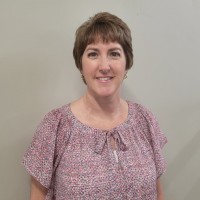 Elizabeth Arnold, Clinical Informaticist, ECU Health
Elizabeth Arnold, Clinical Informaticist, ECU Health
https://www.linkedin.com/in/elizabeth-arnold-66650940/
Elizabeth is an RN with 28 years of experience including 26 years in operating room nursing specializing in cardiovascular and thoracic surgery. The last two years have been in the informatics area. She earned her Bachelor of Science in nursing from East Carolina University.
Technical Presentations
Cybersecurity Performance Goals – A Roadmap For Critical Infrastructure
Tom Millar
Every organization faces significant challenges in determining where to invest their scarce cybersecurity resources in order to reduce risk in the most cost-effective manner possible. The Cybersecurity Performance Goals offer a roadmap that can fit any organization of any size, prioritizing specific practices according to cost, complexity and impact on risk. This presentation will introduce the history and concept behind the goals, how they were developed, and our observations on how they have been adopted so far across America’s critical infrastructure.
Objectives:
- Attendees will be able to distinguish the cybersecurity performance goals by their complexity, likely cost, and positive impact to their cybersecurity posture.
- Attendees will be able to describe the cybersecurity performance goals to their peers and superiors and explain the value of adoption.
- Attendees will be able to analyze their existing cybersecurity posture and contrast it with the practices suggested by the cybersecurity performance goals.
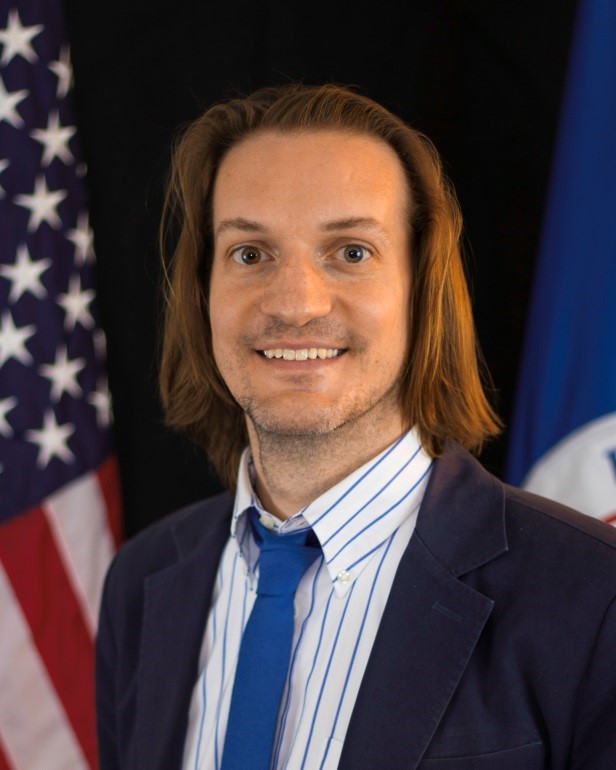 Tom Millar, Senior Advisor, Cybersecurity and Infrastructure Security Agency (CISA)
Tom Millar, Senior Advisor, Cybersecurity and Infrastructure Security Agency (CISA)
Mr. Millar has served in CISA since 2009, working to strengthen the nation’s cyber defenses and resilience against emerging threats. His work has included increasing the level of public, private, and international partner engagement, and supporting initiatives to improve information sharing, such as the standardization of the Traffic Light Protocol. As the Branch Chief of Cyber Resilience within the Cyber Security Division, he oversees CISA’s architectural cybersecurity assessments, the Cybersecurity Performance Goals program, and training and standards for assessment performance. Prior to his cybersecurity career, he served as a linguist with the 22nd Intelligence Squadron of the United States Air Force. Mr. Millar holds a Master’s of Science from George Washington University and is a distinguished graduate of the National Defense University’s College of Information and Cyberspace.
It Takes a Village: A Team-Based Approach to Clinical Cybersecurity
Katie Adams
Clinical cybersecurity poses a significant threat to healthcare organizations worldwide. Through the exploration of various tools, tactics, and techniques, this 60-minute presentation offers insights into how healthcare systems can collaborate both internally across clinical and non-clinical teams, as well as externally with device vendors and other partner organizations, to enhance clinical cybersecurity, increase patient safety, and reduce organizational risk,
Learning Objectives:
- Define a team-based approach to clinical cybersecurity.
- Describe the importance of collaboration and ownership to the success of a clinical cybersecurity program.
- Choose stakeholders required for effective implementation of a clinical cybersecurity program.
- Analyze various tools to support enhanced visibility of network-connected clinical devices.
- Evaluate processes to improve medical device procurement and shorten organizational response time for clinical cybersecurity incidents.
 Katie Adams, Cybersecurity Director, Clinical Technology Services Providence
Katie Adams, Cybersecurity Director, Clinical Technology Services Providence
https://www.linkedin.com/in/katie-adams-mha-pmp-376b6632/
Katie Adams has over 12 years of experience in healthcare project management and operations at Providence. In her current role as cybersecurity director for Clinical Technology Services, Katie helps bridge the gap between technology and patient care to strengthen cybersecurity throughout the organization. Katie is a certified Project Management Professional (PMP) and holds a Master in Healthcare Administration (MHA) degree from the University of Providence.
KEYNOTE PRESENTATION – Pre-Ransomware Notification initiative (PRNI)
Rob Main
CISA’s Pre-Ransomware Notification Initiative is one of many no-cost cybersecurity services we offer our stakeholders. During this presentation, attendees will be provided an overview of CISA as the nation’s premier risk manager. Next, the current state of our risk landscape will be covered, to include real-world examples of direct North Carolina impacts. Finally, the invaluable Pre-Ransomware Notification Initiative will be introduced, beginning with the curation of cyber threat intelligence and ending with the delivery of the time-sensitive notifications and follow-on support provided to critical infrastructure stakeholders.
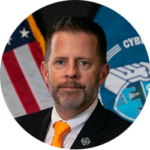 Rob Main Cyber Security Coordinator (NC), Cybersecurity and Infrastructure Security Agency
Rob Main Cyber Security Coordinator (NC), Cybersecurity and Infrastructure Security Agency
https://www.linkedin.com/in/rob-main-cgcio/
A veteran IT professional with nearly 30 years of leadership experience, Rob Main joined the US Department of Homeland Security’s Cybersecurity and Infrastructure Security Agency (CISA) in June 2023 and presently serves as CISA Region 4’s Cybersecurity State Coordinator for North Carolina. In that role, he offers cybersecurity assistance to critical infrastructure owners and operators and state, local, tribal, and territorial (SLTT) governments in North Carolina. Additionally, he introduces organizations to various CISA cybersecurity products and services, along with other public and private resources, and acts as liaison to CISA cyber programs. Finally, he provides cyber preparedness assessments and protective resources, strategic messaging, working group support and leadership, partnership in public-private development, and incident coordination and support in times of cyber threat, disruption, and attack. Prior to his current role, Rob held several positions within the North Carolina state government since 1998, including as the State Chief Risk Officer for the State of North Carolina and CIO for three other state agencies. In those roles, Rob conducted the business of information technology as a strategic member of executive leadership teams. Additionally, Rob is an U.S. Air Force veteran, having served more than 25 years both on active duty and with the North Carolina Air National Guard.
Putting Generative AI to Work in Healthcare
Matthew Howard, PhD
This educational session will focus on the ‘real’ opportunity for generative AI in healthcare, including how use cases can be identified and prioritized, how some of the challenges can be addressed, and where this technology may lead in the future. Dr. Howard will share real world examples of where generative AI is being used today, how it was delivered, and different approaches to implementation.
Objectives:
- Understand what generative AI is, why is it important, and how is it different to AI/ML technologies the audience may have worked with before.
- Understand where generative AI is being used today in healthcare, alongside challenges and complexities, and how these can be addressed.
- Help the audience navigate the opportunity vs. hype, and how to get started.
 Matthew Howard, PhD, Head of Global Health and Non-Profit Data Science, Amazon Web Services
Matthew Howard, PhD, Head of Global Health and Non-Profit Data Science, Amazon Web Services
https://www.linkedin.com/in/matthewhoward/
Dr. Howard is part of the AWS Global Health and Non-Profits team, focused on how data, machine learning and artificial intelligence can transform health systems and improve patient outcomes. He leads a team of applied data scientists, solution architects, and specialists who work with customers to develop AI-based healthcare solutions. Recent projects include multimodal cancer patient stratification, automated literature review using generative AI, and AI-based medical information systems. Dr. Howard and his team are working with global customers including NHS England, Genomics England, and eHealth Australia. Prior roles to AWS include director of AI for Deloitte UK, and European lead for Watson Health at IBM. He holds a PhD from Imperial College London and the Institute of Cancer Research.
Real World AI: Insider Experiences and Perspectives
Christy Spivey
Heather Thornton
Eddie Parrish
Jim Beinlich
 Christy Spivey, RN, BSN Senior Dir. Hospital Based Medicine Coastal Market, Novant Health
Christy Spivey, RN, BSN Senior Dir. Hospital Based Medicine Coastal Market, Novant Health
https://www.linkedin.com/in/christy-spivey/
Christy is a nurse executive, board certified and Fellow in the American College of Healthcare Executives. She has 29 years of progressive healthcare leadership and has been the clinical lead for development and implementation of Novant’s first virtual Hospital at Home program. Christy is also the administrative lead of medicine institute in partnership with physician lead for coastal market, including NHRMC, PMC, BMC, Ortho and Scotts Hill hospitals medicine program.
 Heather Thornton VP, Digital Applications, Sutter Health
Heather Thornton VP, Digital Applications, Sutter Health
https://www.linkedin.com/in/heather-henry-thornton-107b6b7/
Heather is the vice president, digital applications for Sutter Health. She is an experienced VP of applications with a demonstrated history of working in the hospital and health care industry. Her skills are in hospital operations, clinical systems, analytics, Lean, and revenue cycle and her strong information technology experiences and various roles helps with navigating the world of AI. At Sutter Health, Heather focus on all things Epic and digital applications. Her current role is a culmination of experiences as a healthcare delivery leader and early vendor system experience.
 Eddie Parrish CIO, EmergeOrtho
Eddie Parrish CIO, EmergeOrtho
https://www.linkedin.com/in/eddie-parrish-13940420/
With 31 years of Healthcare IT experience, Eddie currently serves as the Chief Information Officer (CIO) at EmergeOrtho, the largest physician-owned orthopedic practice in North Carolina and the fifth largest in the country. He has a deep understanding of the unique challenges facing healthcare organizations and has successfully implemented and supported cyber security programs, managed complex IT projects, and led teams to support strategic initiatives. His expertise extends to IT strategy, cyber security, electronic medical record systems, enterprise resource planning systems, and innovative solutions that enhance patient care and optimize operational efficiencies. Eddie holds an MS in information technology from East Carolina University and a BA in mathematics from the University of North Carolina, Wilmington.
 Jim Beinlich Healthcare Information Technology Consultant and Principal, Himformatics
Jim Beinlich Healthcare Information Technology Consultant and Principal, Himformatics
https://www.linkedin.com/in/jim-beinlich-0526598/
Jim has 30+ years’ experience as a healthcare IT executive and consultant. He has worked in large provider organizations consulting, and higher education. Jim held numerous leadership roles within healthcare IT throughout his career and built and managed large project management offices (PMOs), clinical and business application teams, software development, clinical engineering, and most recently data and analytics teams. He also has significant experience managing healthcare IT operations including vendor relationships, managed services, outsourcing/insourcing, mergers and acquisitions, large construction projects’ technology programs, and healthcare IT operating budgets in the $250m range. Jim holds adjunct faculty appointments at Temple University’s College of Public Health and Widener University’s Graduate School of Business (Healthcare Management Program) teaching project management, process management, and analytics. Jim has a Master of Business Administration (Healthcare Management) and a Bachelor of Science in Information Systems from Widener University.
Scaling Artificial Intelligence Governance Across a Large Healthcare System
Ram Rimal
 Ram Rimal Manager of Data Science Engineering, UNC Health
Ram Rimal Manager of Data Science Engineering, UNC Health
https://www.linkedin.com/in/ram-rimal-93520aa1/
Ram C. Rimal is a highly accomplished data science and healthcare AI leader with over a decade of experience in the healthcare industry. He currently serves as the Manager of Data Science/AI & Epic@UNC Research at UNC Healthcare System, where he has played a pivotal role in developing a data science engagement framework, establishing a four-tier career ladder, and creating a mentorship program to foster talent growth. His leadership extends to building a state-of-the-art AI Center of Excellence, aligning with national healthcare guidelines.
UNC Health’s Cloud Migration Business Case, Journey and Technology
Mark Matthews
Shaun McDonald
UNC Health processes 2 billion rows of data daily. The volume of data is constantly increasing, costs are accelerating and on-premises hardware is aging and at capacity. UNC Health needed and developed a plan to improve reliability, increase performance, support innovation, lower cost, satisfy demand and improve operability by moving to advanced cloud-based framework. The solution set will improve data sourcing, integration, storage, fabric and insights. The new platform will also enable the Enterprise Analytics team to better support care delivery innovation, care redesign, clinical improvements and patient/consumer engagement. These use cases are critical components of achieving and maintaining UNC Health’s HIMSS Stage 7 Certification. All these considerations compelled UNC Health to adopt a Fabric-First Cloud Strategy.
Learning Objectives
- Understand UNC Health’s business case for embracing cloud migration
- Learning Objective 2: Learn about a large regional health system’s plan and what drove business, functional and technical decisions
- Learning Objective 3: Opportunity to discuss various platforms considered, the framework UNC Health chose and the rationale behind the decisions
- Understand the general value proposition and potential ROI development for cloud migration and related transformations
- Participate in an open dialogue with healthcare leaders either considering cloud migration or executing their own vision
 Mark Matthews, Director of Analytics UNC Health
Mark Matthews, Director of Analytics UNC Health
https://www.linkedin.com/in/mark-matthews-5854b2236/
Mark Matthews is the director of analytics at UNC Health, where he has been instrumental for the past 5 years in using data to drive strategic decision-making in healthcare. With expertise in data analytics, architecture, database development, and visualizations, Mark enhances informed decision-making processes in organizations.
He has over 25 years of experience across healthcare, manufacturing, and life sciences, including roles in sales and marketing, supply chain, and HR. Mark’s international experience includes developing a global data architecture strategy at Bayer CropScience in Germany.
A graduate of North Carolina State University with a bachelor’s in math education, Mark is committed to excellence and passionate about using data for informed decisions. At UNC Health, he leads efforts to transform data into actionable insights, advancing healthcare analytics with metrics and AI.
 Shaun McDonald, IT Manager – ISD Enterprise Analytics and Data Services, UNC Health
Shaun McDonald, IT Manager – ISD Enterprise Analytics and Data Services, UNC Health
https://www.linkedin.com/in/mcdshaun/
Shaun McDonald serves as IT manager for UNC Health’s business intelligence team. His responsibilities in this role include managing the team supporting the enterprise data warehouse environment and UNC Health’s analytics applications. He evaluates the health care system’s projects for their data and analytics needs and impacts and serves as a technology subject matter expert for analytics, population health, and clinical departments throughout the system.
Shaun has been with UNC Health Care for over 16 years in various roles. His past positions include departmental database administrator, data and interoperability developer, clinical team lead for the EHR reporting team, and enterprise architect for analytics.
Shaun holds a Bachelor of Science degree in computer science from the University of Central Florida in Orlando, Florida. His areas of expertise include enterprise architecture, data & analytics, and health informatics.
Keynote Bios
 Anand Chowdhury, MD, Informatician, Pulmonologist, and Intensivist, Duke Health
Anand Chowdhury, MD, Informatician, Pulmonologist, and Intensivist, Duke Health
https://www.linkedin.com/in/anand-chowdhury/
Dr. Anand Chowdhury is an Assistant Professor of Medicine with a practice in pulmonary and critical care medicine. His medical training spans prestigious institutions such as the Cleveland Clinic, Emory, and Baylor College of Medicine. Further enhancing his expertise, Dr. Chowdhury completed the Clinical Informatics fellowship at Duke and holds a master’s degree from the MMCi program.
As the Director of Informatics for Artificial Intelligence at Duke, Dr. Chowdhury has contributed to adapting clinical decision support processes for generative AI. He is an ex officio member of the AI Strategic Planning Group for Duke Health and leads several innovative pilots of generative AI healthcare applications.
Dr. Chowdhury’s expertise and research interests lie at the intersection of technology and healthcare, focusing on Critical Care Analytics, the utilization of health data for program evaluation, and the evaluation of generative AI in healthcare applications. His work focuses on ensuring that technology enhances patient care, clinician wellness, and clinical outcomes.
 Natasha Ramontal, DHSC, RN Sr. Digital Health Strategist – Community Outcomes, Analytics – North America, HIMSS
Natasha Ramontal, DHSC, RN Sr. Digital Health Strategist – Community Outcomes, Analytics – North America, HIMSS
https://www.linkedin.com/in/dr-natasha-ramontal-dhsc-rn-142a77150/
Dr. Natasha Ramontal is a digital health specialist at HIMSS where she is responsible for the Digital Health Indicator (DHI) and the Community Care Outcomes Maturity Model (C-COMM) which she helped create. As a doctoral trained RN with experience from the frontlines to executive leadership, Dr. Ramontal has successfully managed projects and products specializing in leveraging technology to improve patient outcomes and operational efficiency. She also created a population health course at Caravan Health and has trained physicians, their staff, and hospital staff on optimization to improve quality and health outcomes. Natasha also served as a clinical systems manager for the largest physician group in the U.S. where she was responsible for the implementation of all clinical IT products for over 10,000 anesthesia providers at over 600 hospitals, ambulatory surgery centers, and physician offices.
 Rob Main Cyber Security Coordinator (NC), Cybersecurity and Infrastructure Security Agency
Rob Main Cyber Security Coordinator (NC), Cybersecurity and Infrastructure Security Agency
https://www.linkedin.com/in/rob-main-cgcio/
A veteran IT professional with nearly 30 years of leadership experience, Rob Main joined the US Department of Homeland Security’s Cybersecurity and Infrastructure Security Agency (CISA) in June 2023 and presently serves as CISA Region 4’s Cybersecurity State Coordinator for North Carolina. In that role, he offers cybersecurity assistance to critical infrastructure owners and operators and state, local, tribal, and territorial (SLTT) governments in North Carolina. Additionally, he introduces organizations to various CISA cybersecurity products and services, along with other public and private resources, and acts as liaison to CISA cyber programs. Finally, he provides cyber preparedness assessments and protective resources, strategic messaging, working group support and leadership, partnership in public-private development, and incident coordination and support in times of cyber threat, disruption, and attack. Prior to his current role, Rob held several positions within the North Carolina state government since 1998, including as the State Chief Risk Officer for the State of North Carolina and CIO for three other state agencies. In those roles, Rob conducted the business of information technology as a strategic member of executive leadership teams. Additionally, Rob is an U.S. Air Force veteran, having served more than 25 years both on active duty and with the North Carolina Air National Guard.
Speaker Bios
 Christy Spivey, RN, BSN Senior Dir. Hospital Based Medicine Coastal Market, Novant Health
Christy Spivey, RN, BSN Senior Dir. Hospital Based Medicine Coastal Market, Novant Health
https://www.linkedin.com/in/christy-spivey/
Christy is a nurse executive, board certified and Fellow in the American College of Healthcare Executives. She has 29 years of progressive healthcare leadership and has been the clinical lead for development and implementation of Novant’s first virtual Hospital at Home program. Christy is also the administrative lead of medicine institute in partnership with physician lead for coastal market, including NHRMC, PMC, BMC, Ortho and Scotts Hill hospitals medicine program.
 Daniel Davis, MD, Senior Medical Director, Primary Care, Greater Charlotte Market Atrium Health
Daniel Davis, MD, Senior Medical Director, Primary Care, Greater Charlotte Market Atrium Health
https://www.linkedin.com/in/daniel-davis-md-0557341b7/
Dr. Dan Davis serves in multiple medical leadership roles within Atrium Health. As senior medical director of continuing health, Dan has medical oversight responsibility for multiple home and community-based care programs within Atrium Health including Atrium Health Hospital at Home, Mobile Integrated Health, Transition Services, Primary Care Connect and Home Health. Under his leadership the continuing health strategies are being aligned and integrated to create a seamless care continuum experience for patients and providers in the ambulatory space. In this role, Dan spearheaded the development and implementation of Primary Care Connect, a virtual nursing care coordination program, across the Atrium Health Primary Care footprint in North Carolina, South Carolina, Georgia, and Alabama. Primary Care Connect has touched the lives of over 13,000 patients since its inception in 2021. In leading Atrium Health Hospital at Home, Dan has been instrumental in maintaining its status as the largest Hospital at Home program in the nation caring for more than 11,000 patients since inception. In his role as senior medical director of Primary Care in Atrium Health’s Greater Charlotte Market, Dan has responsibility for 550 family medicine, internal medicine, and urgent care physicians and APPs who provide care for over 750,000 patients. In addition to his leadership responsibilities, Dan continues to practice as an internal medicine physician in Charlotte, North Carolina.
 David Stallsmith Director of Product Management, ColorID
David Stallsmith Director of Product Management, ColorID
https://www.linkedin.com/in/david-stallsmith-2a787715/
Since joining ColorID in 2005, David Stallsmith has worked work closely with manufacturers, vendors, and end users to promote understanding of the complicated products and services that comprise the identification industry. He has contributed to the decision-making process at many universities, health care facilities and government agencies as they considered acquiring contactless, smart card, mobile ID and biometric systems. Voted Presenter of the Year at the 2023 ECCA Conference in Warsaw (European Campus Card Association), David has also presented annually at the National Association of Campus Card Users conferences in the USA and Canada, NACAS annual and Leadership conferences, and full-day Identity Summits hosted by prominent universities.
 Eddie Parrish CIO, EmergeOrtho
Eddie Parrish CIO, EmergeOrtho
https://www.linkedin.com/in/eddie-parrish-13940420/
With 31 years of Healthcare IT experience, Eddie currently serves as the Chief Information Officer (CIO) at EmergeOrtho, the largest physician-owned orthopedic practice in North Carolina and the fifth largest in the country. He has a deep understanding of the unique challenges facing healthcare organizations and has successfully implemented and supported cyber security programs, managed complex IT projects, and led teams to support strategic initiatives. His expertise extends to IT strategy, cyber security, electronic medical record systems, enterprise resource planning systems, and innovative solutions that enhance patient care and optimize operational efficiencies. Eddie holds an MS in information technology from East Carolina University and a BA in mathematics from the University of North Carolina, Wilmington.
 Elizabeth Arnold, Clinical Informaticist, ECU Health
Elizabeth Arnold, Clinical Informaticist, ECU Health
https://www.linkedin.com/in/elizabeth-arnold-66650940/
Elizabeth is an RN with 28 years of experience including 26 years in operating room nursing specializing in cardiovascular and thoracic surgery. The last two years have been in the informatics area. She earned her Bachelor of Science in nursing from East Carolina University.
 Haley Young Acting Chief Data Officer, NCDHHS
Haley Young Acting Chief Data Officer, NCDHHS
https://www.linkedin.com/in/hayley-elia-young/
Hayley Young serves as the acting chief data officer for North Carolina’s Department of Health and Human Services. In her role she leads in developing a strategy to use data to inform and evaluate policy, programs, and services and improve the health and well-being of residents of North Carolina. Ms. Young supports a range of efforts in the areas of data infrastructure, governance, training, and analysis across NCDHHS programs. She received her MPH from Emory University with a Certificate in Maternal and Child Health.
 Han Nguyen Analytics and Interoperability Solutions Developer, UNC Health
Han Nguyen Analytics and Interoperability Solutions Developer, UNC Health
https://www.linkedin.com/in/hantnguyen/
Han Nguyen is a solutions developer at UNC Health. She has over 25 years of experience in financial and healthcare, full life cycle applications and software integration development. Han has a bachelor’s degree in computer science with a minor in mathematics from SUNY Binghamton. She is a patent holder on web services and data integration.
 Heather Thornton VP, Digital Applications, Sutter Health
Heather Thornton VP, Digital Applications, Sutter Health
https://www.linkedin.com/in/heather-henry-thornton-107b6b7/
Heather is the vice president, digital applications for Sutter Health. She is an experienced VP of applications with a demonstrated history of working in the hospital and health care industry. Her skills are in hospital operations, clinical systems, analytics, Lean, and revenue cycle and her strong information technology experiences and various roles helps with navigating the world of AI. At Sutter Health, Heather focus on all things Epic and digital applications. Her current role is a culmination of experiences as a healthcare delivery leader and early vendor system experience.
 Jenell Stewart Asst. Director, Health Analytics and External Services, NC Health Information Exchange Authority
Jenell Stewart Asst. Director, Health Analytics and External Services, NC Health Information Exchange Authority
https://www.linkedin.com/in/jenell-stewart-drba-706b0a4/
Dr. Jenell Stewart joined the NC Health Information Exchange Authority (NC HIEA) in May of 2019, she is the assistant director for Health Analytics and External Services. Her current role includes establishing the strategic direction for the NC HIEA analytics program, managing the analytics team, and working closely with health care leaders across the state of North Carolina. She works closely with leadership, technology partners and other key stakeholders to drive adoption of good data management practice across the enterprise.
Jenell earned her doctorate in business administration specializing in management of engineering and technology from Northcentral University. She has over 20 years of N.C. state government experience with the last 12 years working for the North Carolina Department of Technology Data Division, of which the NC HIEA is a part.
 Jim Beinlich Healthcare Information Technology Consultant and Principal, Himformatics
Jim Beinlich Healthcare Information Technology Consultant and Principal, Himformatics
https://www.linkedin.com/in/jim-beinlich-0526598/
Jim has 30+ years’ experience as a healthcare IT executive and consultant. He has worked in large provider organizations consulting, and higher education. Jim held numerous leadership roles within healthcare IT throughout his career and built and managed large project management offices (PMOs), clinical and business application teams, software development, clinical engineering, and most recently data and analytics teams. He also has significant experience managing healthcare IT operations including vendor relationships, managed services, outsourcing/insourcing, mergers and acquisitions, large construction projects’ technology programs, and healthcare IT operating budgets in the $250m range. Jim holds adjunct faculty appointments at Temple University’s College of Public Health and Widener University’s Graduate School of Business (Healthcare Management Program) teaching project management, process management, and analytics. Jim has a Master of Business Administration (Healthcare Management) and a Bachelor of Science in Information Systems from Widener University.
 John McCullough, CPHIMS, Senior Partner Digital & Technology Organization, Chartis
John McCullough, CPHIMS, Senior Partner Digital & Technology Organization, Chartis
https://www.linkedin.com/in/jdmcc18/
John McCullough is a senior partner in digital & technology transformation and co-leads the business technology innovation practice at Chartis. He has over 20 years of experience driving the operational aspects of designing, developing, and delivering creative digital strategies and solutions that improve quality and lower costs.
He is skilled at aligning technology operations with corporate and marketplace strategies in both start-up and mature operating environments.
Prior to joining Chartis, John served in multiple progressive IT executive roles at the Cleveland Clinic, the most recent being the executive director of ITD Digital Business Applications. He has also served in executive positions at Wake Forest Baptist Medical Center, Novant Health, and Salem Health Solutions.
John earned his master’s degree in business administration from Wake Forest University, and his Bachelor of Science from the Medical University of South Carolina.
 Katie Adams, Cybersecurity Director, Clinical Technology Services Providence
Katie Adams, Cybersecurity Director, Clinical Technology Services Providence
https://www.linkedin.com/in/katie-adams-mha-pmp-376b6632/
Katie Adams has over 12 years of experience in healthcare project management and operations at Providence. In her current role as cybersecurity director for Clinical Technology Services, Katie helps bridge the gap between technology and patient care to strengthen cybersecurity throughout the organization. Katie is a certified Project Management Professional (PMP) and holds a Master in Healthcare Administration (MHA) degree from the University of Providence.
 Kumar Murukurthy, MD, CIDO, Altais
Kumar Murukurthy, MD, CIDO, Altais
https://www.linkedin.com/in/kumar-murukurthy-md/
Kumar Murukurthy is a results-driven healthcare executive with over 25 years of progressive leadership roles, from CMIO to CIO, specializing in healthcare informatics and health information technology system usability. As the CIDO at Altais, he is involved in the development and implementation of technology-driven strategies and initiatives that align with the overall business objectives of the organization.
Formerly the CIO and senior director of digital transformations and innovation at Walmart Health, Kumar was responsible for the overall management and strategic direction of the organization’s information technology systems and infrastructure. He led the implementation and operations of EHR and digital systems throughout Walmart Health and Wellness and was responsible, at the enterprise level, for technology and digital strategy, operations, talent, technical, and financial leadership. He analyzes pain points and goals, providing innovative solutions within a tight timeframe, and ensures the appropriate product and strategy exist to assist clients in achieving their goals.
Prior to joining Walmart Health, Kumar was responsible for leading the implementation and operations of major EHRs throughout the CommonSpirit Health System’s 1000+ sites. His role encompassed enterprise-level IT and digital strategy, operations, talent, technical, and financial leadership. Kumar had direct involvement in the merger of Dignity Health and Catholic Health Initiative technologies.
 Matthew Howard, PhD, Head of Global Health and Non-Profit Data Science, Amazon Web Services
Matthew Howard, PhD, Head of Global Health and Non-Profit Data Science, Amazon Web Services
https://www.linkedin.com/in/matthewhoward/
Dr. Howard is part of the AWS Global Health and Non-Profits team, focused on how data, machine learning and artificial intelligence can transform health systems and improve patient outcomes. He leads a team of applied data scientists, solution architects, and specialists who work with customers to develop AI-based healthcare solutions. Recent projects include multimodal cancer patient stratification, automated literature review using generative AI, and AI-based medical information systems. Dr. Howard and his team are working with global customers including NHS England, Genomics England, and eHealth Australia. Prior roles to AWS include director of AI for Deloitte UK, and European lead for Watson Health at IBM. He holds a PhD from Imperial College London and the Institute of Cancer Research.
 Mark Matthews, Director of Analytics UNC Health
Mark Matthews, Director of Analytics UNC Health
https://www.linkedin.com/in/mark-matthews-5854b2236/
Mark Matthews is the director of analytics at UNC Health, where he has been instrumental for the past 5 years in using data to drive strategic decision-making in healthcare. With expertise in data analytics, architecture, database development, and visualizations, Mark enhances informed decision-making processes in organizations.
He has over 25 years of experience across healthcare, manufacturing, and life sciences, including roles in sales and marketing, supply chain, and HR. Mark’s international experience includes developing a global data architecture strategy at Bayer CropScience in Germany.
A graduate of North Carolina State University with a bachelor’s in math education, Mark is committed to excellence and passionate about using data for informed decisions. At UNC Health, he leads efforts to transform data into actionable insights, advancing healthcare analytics with metrics and AI.
 Mike Ratliff, AVP, Security Engineering and Operations Providence
Mike Ratliff, AVP, Security Engineering and Operations Providence
https://www.linkedin.com/in/mike-r-260383162/
Mike Ratliff has over 35 years of IT and cybersecurity experience and serves as the associate vice president of security engineering and operations at Providence, where he oversees threat and attack surface management, incident response, insider risk, tier 1 cybersecurity support, security engineering infrastructure, clinical security, and DevSecOps. He holds a bachelor’s degree in information systems security from the American Military University and is a Certified Information Systems Security Professional (CISSP) and Certified Information Security Manager (CISM).
 Monica Schmidt, MPH PhD , Executive Director: Health Economics, Cone Health
Monica Schmidt, MPH PhD , Executive Director: Health Economics, Cone Health
https://www.linkedin.com/in/monica-schmidt-mph-phd-970b839/
Dr. Schmidt is a key leader in the healthcare industry. She obtained her MPH in epidemiology and PhD in health services research with a focus on economics from the University of North Carolina’s Gilling’s School of Global Public Health. Her focus has been on identifying unwarranted care variation using robust data sources to improve the quality and cost of care across the continuum. She has designed multiple informatics tools to address high-cost problems such as acute kidney injury and diabetic related peripheral neuropathy leading to amputation. By finding novel ways to move care upstream in the chronic disease pathways, she has been successful in preventing downstream complications. For example, the embedded tool designed by Dr. Schmidt to identify acute kidney injury earlier for inpatients has resulted in over 2000 averted cases of AKI estimated to be worth $8 million dollars in savings over 12 months. Dr. Schmidt’s research has been focused on identifying opportunities for large health systems and ACOs to reduce the cost of care while not compromising quality. She partners with industry to conduct pragmatic clinical trials that test novel technologies that avert chronic disease complications instead of managing these complications.
 Paul Thomas Analytics and Interoperability Solutions Developer, UNC Health
Paul Thomas Analytics and Interoperability Solutions Developer, UNC Health
https://www.linkedin.com/in/paul-thomas-81349999
Paul has 15+ years experience developing interface solutions between hospital EMRs and vendor software.
 Ram Rimal Manager of Data Science Engineering, UNC Health
Ram Rimal Manager of Data Science Engineering, UNC Health
https://www.linkedin.com/in/ram-rimal-93520aa1/
Ram C. Rimal is a highly accomplished data science and healthcare AI leader with over a decade of experience in the healthcare industry. He currently serves as the Manager of Data Science/AI & Epic@UNC Research at UNC Healthcare System, where he has played a pivotal role in developing a data science engagement framework, establishing a four-tier career ladder, and creating a mentorship program to foster talent growth. His leadership extends to building a state-of-the-art AI Center of Excellence, aligning with national healthcare guidelines.
 Sarah McNulty, Licensed Clinical Social Worker Duke MMCi
Sarah McNulty, Licensed Clinical Social Worker Duke MMCi
https://www.linkedin.com/in/sarahmariamcnulty/
Sarah McNulty is a hospice clinical social worker with Duke HomeCare and Hospice. She has over 15 years of medical social work experience and has specialized in hospice care for six years. She feels the support services have a voice, and a meaningful assessment would enhance patient care. This belief led her to pursue a Masters of Management in Clinical Informatics from Duke University School of Medicine. Sarah obtained her undergraduate degree from East Carolina University in Greenville, NC, and her Master of Social Work from Smith College School of Social Work in Northampton, MA. She is a licensed clinical social worker in NC and has an advanced hospice and palliative care social worker certificate from the Hospice and Palliative Credentialing Center. Sarah is also a clinical supervisor for Licensed Clinical Worker Associates in NC. As a yoga student for over 20 years, Sarah received her yoga teacher certification from Triad Yoga Institute in Greensboro, NC.
 Shaun McDonald, IT Manager – ISD Enterprise Analytics and Data Services, UNC Health
Shaun McDonald, IT Manager – ISD Enterprise Analytics and Data Services, UNC Health
https://www.linkedin.com/in/mcdshaun/
Shaun McDonald serves as IT manager for UNC Health’s business intelligence team. His responsibilities in this role include managing the team supporting the enterprise data warehouse environment and UNC Health’s analytics applications. He evaluates the health care system’s projects for their data and analytics needs and impacts and serves as a technology subject matter expert for analytics, population health, and clinical departments throughout the system.
Shaun has been with UNC Health Care for over 16 years in various roles. His past positions include departmental database administrator, data and interoperability developer, clinical team lead for the EHR reporting team, and enterprise architect for analytics.
Shaun holds a Bachelor of Science degree in computer science from the University of Central Florida in Orlando, Florida. His areas of expertise include enterprise architecture, data & analytics, and health informatics.
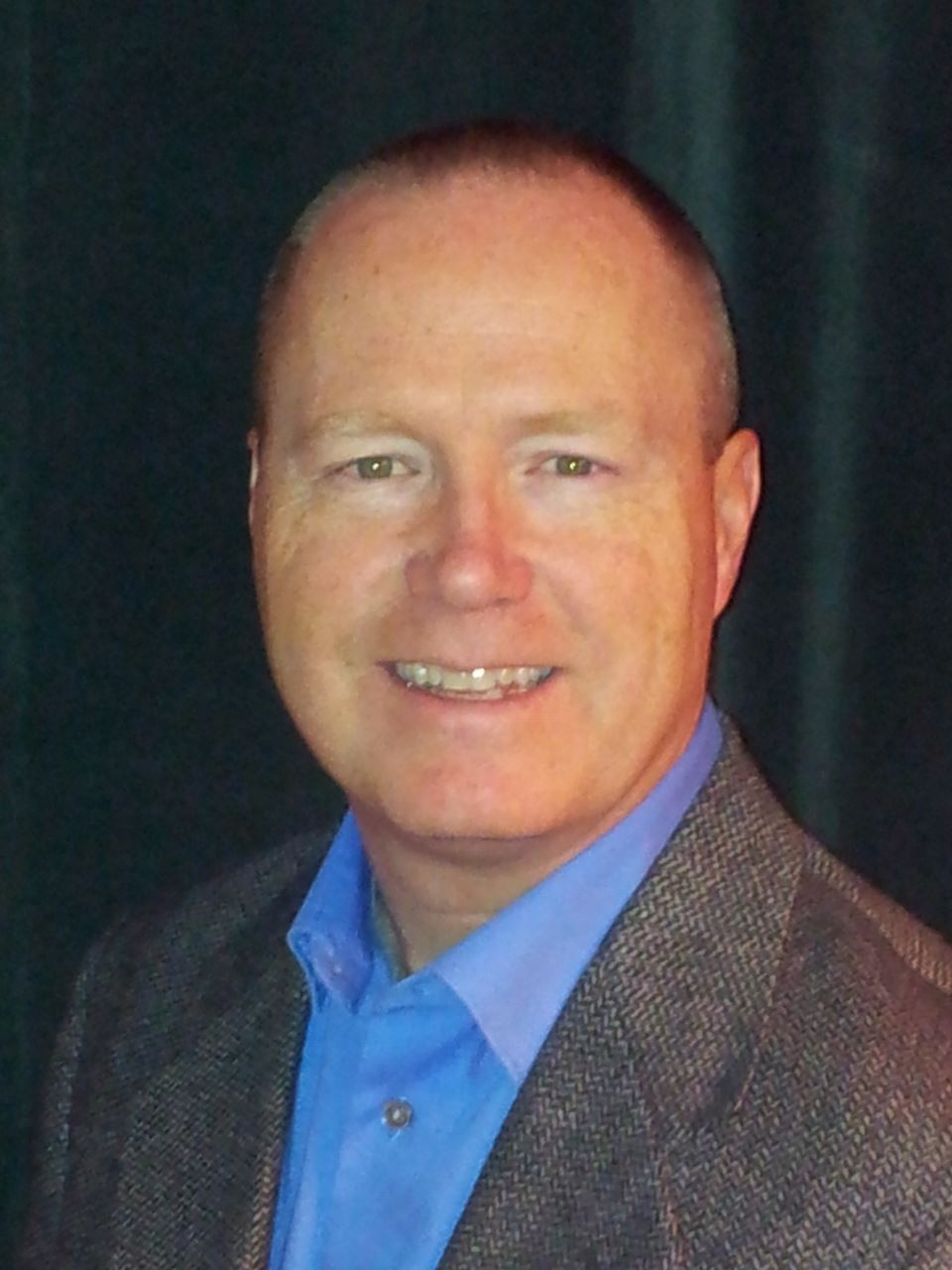 Stephen Ellithorpe, Executive Director, Clinical Technology Strategy & Innovation Providence
Stephen Ellithorpe, Executive Director, Clinical Technology Strategy & Innovation Providence
Steve Ellithorpe has 37 years in the Healthcare Technology Management (HTM)/clinical engineering services field and currently serves as executive director of Clinical Technology Strategy and Innovation for Providence. In his current role, Steve develops medical device and clinical technology lifecycle roadmaps and replacement strategies which includes lifecycle impacts associated with aging operating systems and software revisions. Additional work includes integrating cybersecurity and device standards into the enterprise procurement processes. Steve previously served on technical advisory boards for both Portland Community College and Spokane Community College and is currently serving as president of the Washington State Biomedical Association (WSBA).
 Tiffany Chan , CEO & Co-Founder, Atalan Tech
Tiffany Chan , CEO & Co-Founder, Atalan Tech
https://www.linkedin.com/in/tiffany-w-chan/
Tiffany Chan is the CEO and Co-Founder of Atalan Tech, a women-led, mission-oriented startup focused on using machine learning to predict and prevent clinician burnout and turnover. Tiffany managed an engineering and applied sciences research center at Harvard University for years prior to attending Yale University for graduate studies in policy. She has additional experience consulting with the World Bank and Microsoft. She strives to move the needle on this urgent issue of clinician well-being and retention through innovation and policy changes.
 Tom Millar, Senior Advisor, Cybersecurity and Infrastructure Security Agency (CISA)
Tom Millar, Senior Advisor, Cybersecurity and Infrastructure Security Agency (CISA)
Mr. Millar has served in CISA since 2009, working to strengthen the nation’s cyber defenses and resilience against emerging threats. His work has included increasing the level of public, private, and international partner engagement, and supporting initiatives to improve information sharing, such as the standardization of the Traffic Light Protocol. As the Branch Chief of Cyber Resilience within the Cyber Security Division, he oversees CISA’s architectural cybersecurity assessments, the Cybersecurity Performance Goals program, and training and standards for assessment performance. Prior to his cybersecurity career, he served as a linguist with the 22nd Intelligence Squadron of the United States Air Force. Mr. Millar holds a Master’s of Science from George Washington University and is a distinguished graduate of the National Defense University’s College of Information and Cyberspace.
 Will Johnson, CPHIMS, CIO Tidelands Health
Will Johnson, CPHIMS, CIO Tidelands Health
https://www.linkedin.com/in/will-johnson-mba-chcio-fhimms-cphims-79480b7/
 Xi (Sisi) Hu, PhD , Co-Founder, Atalan Tech
Xi (Sisi) Hu, PhD , Co-Founder, Atalan Tech
https://www.linkedin.com/in/xi-sisi-hu-48447448/
Dr. Xi (Sisi) Hu is a Co-Founder and the Chief Wellbeing Economist of Atalan Tech. She is also a Fellow of the Center for Labor and a Just Economy at Harvard Law School and Research Economist at the National Bureau of Economic Research, with a research focus on labor issues. She specializes in modeling disruption and risks in labor markets and is passionate about protecting the wellbeing of workers in the healthcare industry. Dr. Hu received a National Science Foundation grant to study COVID’s impact on healthcare workers. Her expertise is in risk science where her work has received media attention from around the world including the World Economic Forum, Sky News, the UN, among others.

